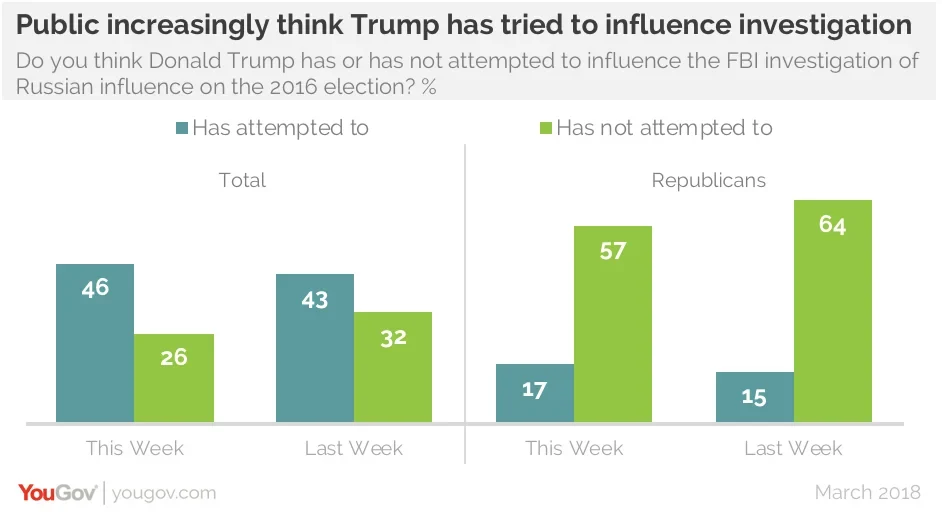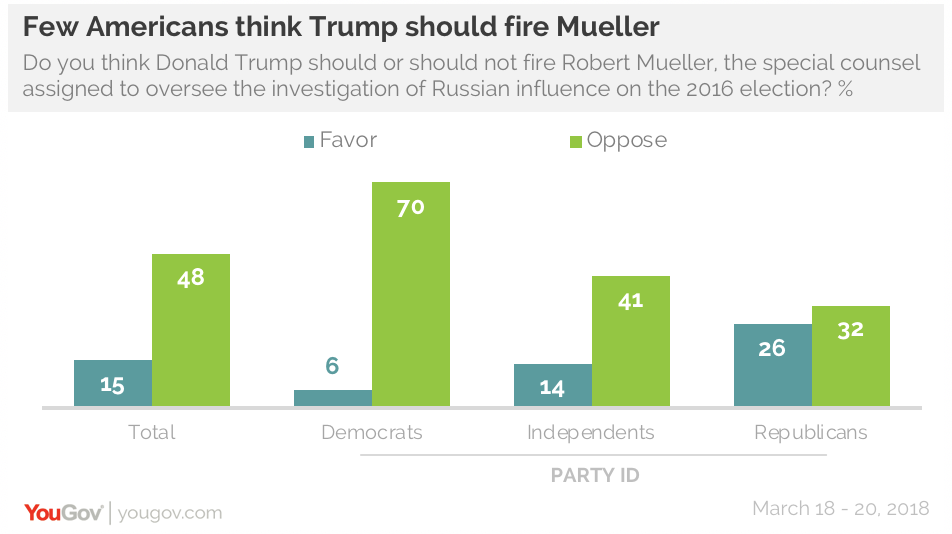34% of Americans consider Russia to be an enemy
Americans have become increasingly worried about Russia. In the latest Economist/YouGov Poll, one in three regard Russia as an enemy, more than at any time since the start of the Trump Administration. And there is relatively little partisan disagreement on this. Last February, only 21% of the public (and just 14% of Republicans) called Russia an enemy of the US.
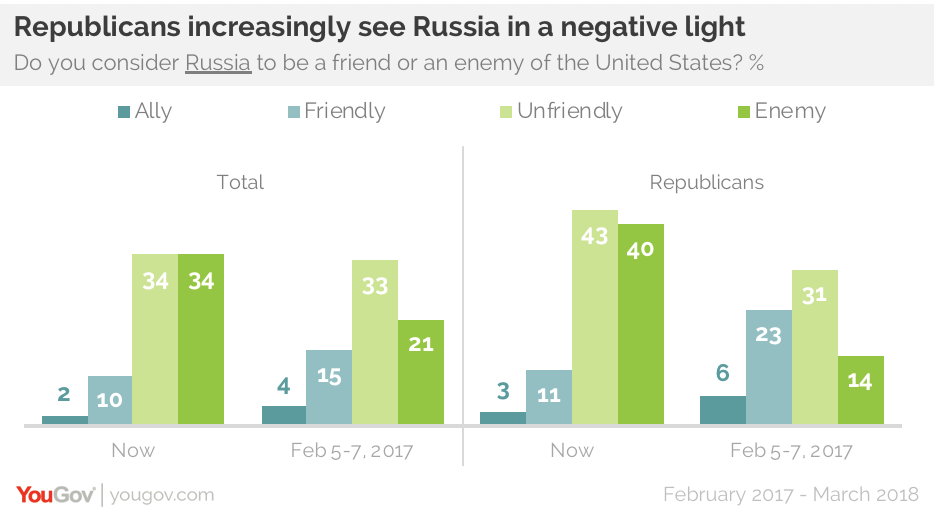
The public believes that the President sees Russia in a more favorable light than they do. As many say that the President thinks Russia is a friendly country as think that he sees it as unfriendly. Since the Inauguration the White House has imposed sanctions on Russia, and the investigation of Russian interference in the 2016 election has produced new information about Russian use of social media in the campaign as well as indictments. But President Trump’s kind words early in his administration for Russia and its leader, Vladimir Putin, continue. The President’s recent call to Vladimir Putin to congratulate him on his election victory (a call his advisers warned him not to make) may underscore many people’s belief that the President views Russia positively.
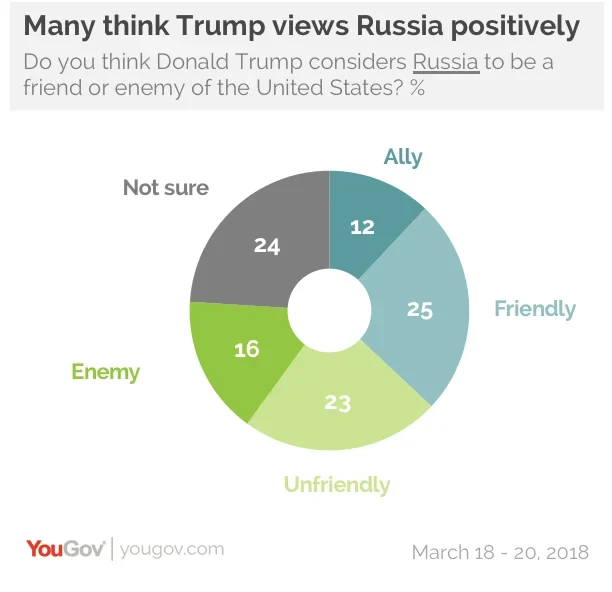
Americans take a different view of Putin: only 12% have a favorable opinion of Putin, 67% are unfavorable.
The recent poisoning of a former Russian spy in the United Kingdom has also affected attitudes. A third of Democrats and Republicans have heard a lot about this and blame Russia; Americans overwhelmingly believe the Russian government ordered the attack.
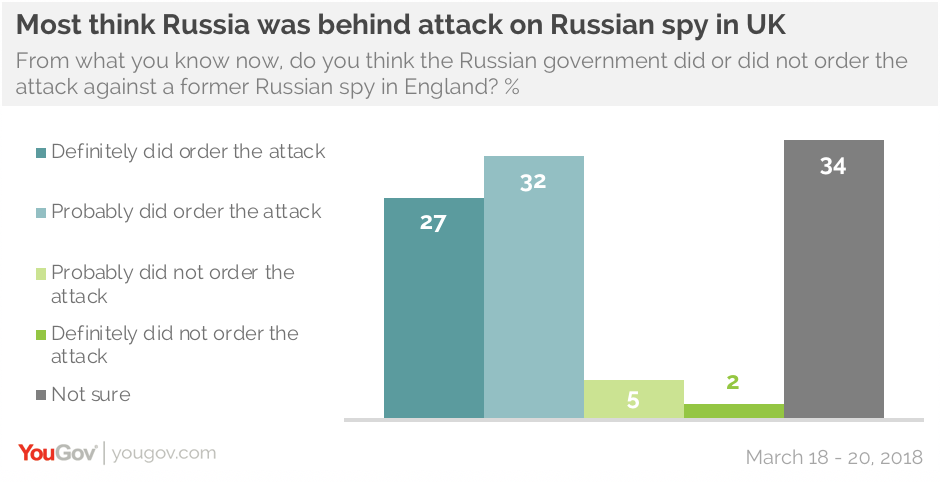
Russia is not only seen as an unfriendly country; two in three regard it as a direct threat. Only North Korea is seen by more people as an immediate and serious threat to the US. When asked which of several country poses the greatest threat to the United States, North Korea and Russia rank at the top, above Iran and China. For Republicans, North Korea is the greatest threat, for Democrats, it is clearly Russia.
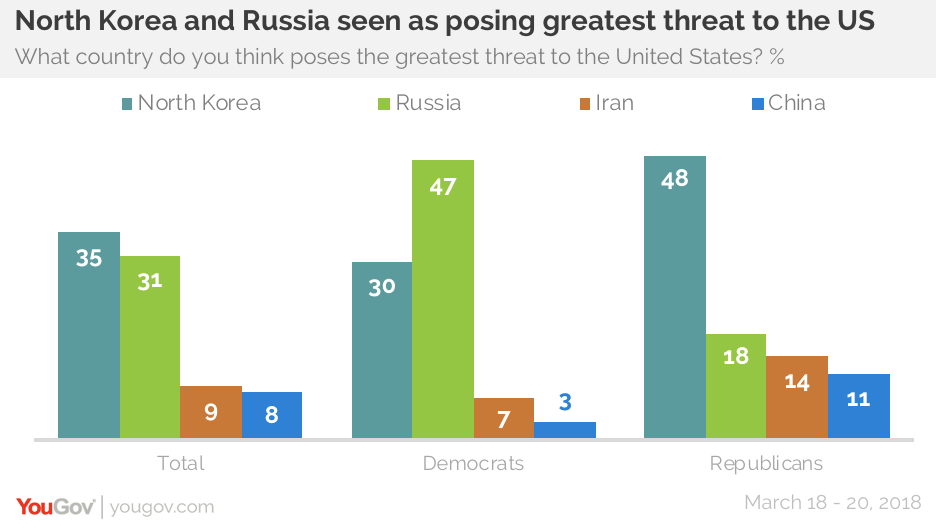
The President’s kind words for the Russian leader may complicate the current probe into Russian interference in the 2016 election. While the President claims “no collusion,” the administration has extended the sanctions on some Russian individuals and entities, and the Special Counsel has indicted Russian nationals for interference.
That investigation into the 2016 election is viewed differently by Democrats and Republicans. Two-thirds of Democrats say it is a serious attempt to find out what happened, while 60% of Republicans say it is politically motivated.
But the percentage that believes the President has attempted to influence the investigation is creeping upwards. This week, after the firing of FBI deputy director Andrew McCabe, nearly half the public think President Trump has tried to do so, and one in four say he has not.
Most Republicans believe the President has not attempted to influence the investigation, but that percentage is lower this week than last. Overall, 39% believe the McCabe firing was an attempt to affect the investigation, but 27% believe it wasn’t – and the rest aren’t sure.
